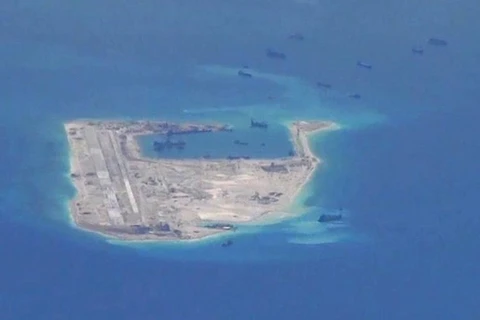Jakarta (VNA) – The Jakarta based Habibie Centre hosted the 36th Talking ASEAN Dialogue post The Hague tribunal’s ruling on the East Sea dispute, in the Indonesian capital city on July 26.
On July 12, the Permanent Court of Arbitration (PCA) in The Hague, the Netherlands, issued its ruling on a case brought by the Philippines against China’s nine-dash line claim in the East Sea, saying China’s claims to historic rights for waters within the nine-dash line are contrary to the 1982 United Nations Convention on the Law of the Sea. The tribunal also found no legal basis for China to claim historic rights to resources within the nine-dash line.
The talk was the first of scholars and experts from major research centres and institutes of Indonesia and the country’s Foreign Ministry to define the consequences of the ruling on regional stability, as well as post-ruling challenges and opportunities for the central role of ASEAN in maintaining peace and stability in the region.
Siswo Pramono, Director General and Head of the Foreign Ministry’s Policy Analysis and Development Agency, said that ASEAN member states have to date issued their particular statements on the PCA ruling which all emphasised the need to exercise self-restraint, avoid tense actions, and conduct actions in accordance with international law and ASEAN’s legal standards.
He also affirmed that the ruling will have certain effects on the ASEAN Economic Community, the Trans-Pacific Partnership (TPP) agreement and the region’s security situation.
Vietnamese Ambassador to Indonesia Hoang Anh Tuan said that all parties involved are keeping a close watch on the ruling’s effects, so as to have appropriate responses.
Participants agreed that this is a final and legally-binding ruling, whose results depend much on the relevant parties, as there is no common mechanism to enforce it.-VNA

























